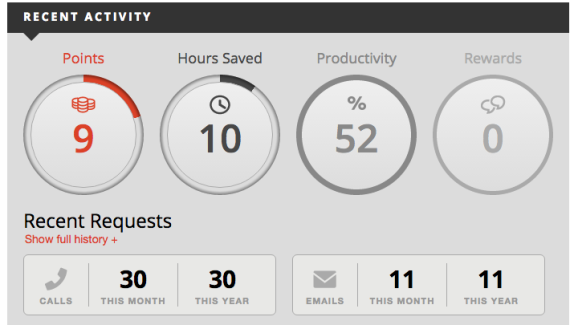CLIMATEWIRE | United Nations Secretary-General António Guterres raised eyebrows Wednesday when he called on world leaders to ban advertising for fossil fuels.
The request is not without precedent; some governments already have restrictions in place. Amsterdam became the world’s first city to ban ads from fossil fuel and aviation companies in 2021. And France became the first country to ban certain advertisements for fossil fuels in 2022.
But in other countries — including the United States — nationwide bans would be tricky to implement.
On supporting science journalism
If you’re enjoying this article, consider supporting our award-winning journalism by subscribing. By purchasing a subscription you are helping to ensure the future of impactful stories about the discoveries and ideas shaping our world today.
While the United States has put in place advertising restrictions on products such as cigarettes and alcohol, those rules were aimed at protecting children — who can’t legally purchase those products, said Michael Gerrard, founder and faculty director of Columbia University’s Sabin Center for Climate Change Law.
“It’s hard to envision, politically, Congress enacting a similar ban on fossil fuel advertising,” he said.
Even if Congress attempted it, a fossil fuel ad ban would almost certainly collapse against legal challenges under current U.S. laws, said Rebecca Tushnet, a First Amendment professor at Harvard Law School. In general, advertising restrictions must demonstrate that something about the campaign is false, misleading or illegal.
Cigarette restrictions were partly intended to remove ads from places where children, who are not legal consumers, could see them. Other regulations were aimed at preventing cigarette companies from making misleading statements, such as ads that claim one brand is healthier than others. Studies overwhelmingly indicate that all cigarettes can increase the risk of cancer and other illnesses.
Barring a major shift in the Supreme Court’s interpretation of the U.S. Constitution, where commercial speech is protected by the First Amendment, a blanket federal ban on fossil fuel advertising would be hard to uphold, Tushnet said.
“It would be open to what is clearly a winning legal challenge under current law,” she said.
An easier avenue might be targeting specific false claims in existing ad campaigns.
Some lawsuits already have targeted fossil fuel companies for running ads with misleading claims about the impacts of their products on the environment or human health, said Robert Brulle, a Brown University professor who studies corporate climate denial and “greenwashing” — or misleading statements about a company’s environmental impacts.
A 2021 lawsuit filed by the city of New York sought to penalize corporations for “misrepresenting the purported environmental benefit of using their fossil fuel products and failing to disclose the risks of climate change caused by those products.”
The suit alleged that such claims violated the Consumer Protection Act.
The American Petroleum Institute responded to the claims of misleading ads by stating that the industry was working on “tackling the climate challenge.”
“Our industry is focused on continuing to produce affordable, reliable energy while tackling the climate challenge, and any allegations to the contrary are false,” API spokesperson Megan Bloomgren said in a statement. “Enabling an affordable, reliable and secure energy future will require contributions from all forms of energy, including oil and natural gas, which are expected to provide over half of the world’s energy needs in 2050.”
Yet the U.N.’s Intergovernmental Panel on Climate Change, the world’s leading authority on global warming, says that global greenhouse gas emissions must spiral down to net zero by midcentury in order to meet the world’s global climate targets. That means dramatic declines in the burning of fossil fuels in the coming years.
In theory, lawmakers could tackle fossil fuel ads by requiring them to include warnings about the dangers they pose to the planet. There’s precedent for that too — alcohol and cigarettes include mandatory warnings about their adverse effects on human health, regulated by the Food and Drug Administration, while EPA enforces warnings for pesticides about their dangers to humans and the environment.
Some municipalities have made moves toward mandatory fossil fuel warnings in recent years. At the end of 2020, Cambridge, Massachusetts, became the first U.S. city to require labels on gas pumps warning of the risks that gasoline, ethanol and diesel pose to human health and the environment.
But federal agencies, like EPA, would be unlikely to require nationwide warning labels for fossil fuels without a mandate from Congress, Tushnet said. And even that might be open to legal challenges.
Fossil fuel companies could argue in court that the dangers of climate change are still debatable, disputing the need for warnings. (In reality, scientists overwhelmingly agree that global warming is caused by the burning of fossil fuels and poses existential risks to humans and the environment.)
While government bans are tricky, restrictions by private companies face no such obstacles. Media companies can decline to sell ad space to fossil fuel firms, and advertising companies can turn away fossil fuel clients, without facing credible First Amendment challenges.
“That’s a purely private action without government interference,” Gerrard said.
Some companies already have adopted policies banning fossil fuel ads, including news organizations including The Guardian and Vox Media. (Disclosure: POLITICO does publish advertisements from fossil fuel companies.)
Guterres’ speech suggests that private interventions and government policies alike could tackle greenwashing in fossil fuel advertisements. The timing has never been more important, he noted.
“Many in the fossil fuel industry have shamelessly greenwashed, even as they have sought to delay climate action with lobbying, legal threats, and massive ad campaigns,” Guterres said. “They have been aided and abetted by advertising and PR companies — mad men fueling the madness. I call on these companies to stop acting as enablers of planetary destruction.”
Earth is hurtling toward a major climate milestone, with experts warning that the 1.5-degree temperature target — the Paris Agreement’s primary goal — is quickly slipping out of reach. Meanwhile, world leaders are working on updating their national climate pledges, which they’ll submit in November 2025 at the U.N.’s annual climate conference. The next 18 months present a crucial window to strengthen global climate action, Guterres said.
Brulle said the secretary-general’s comments on advertising are a turning point in raising the public’s awareness of fossil fuel misinformation.
“This is an ever-accelerating issue that’s now being pushed when the chief of the U.N. says something,” Brulle said. “No, he doesn’t have any legal authority, but he does have moral authority, and other international bodies like the E.U. could take a look at that and say, ‘Yeah, we’re gonna ban this.’”
Reprinted from E&E News with permission from POLITICO, LLC. Copyright 2024. E&E News provides essential news for energy and environment professionals.
Note: This article have been indexed to our site. We do not claim legitimacy, ownership or copyright of any of the content above. To see the article at original source Click Here













